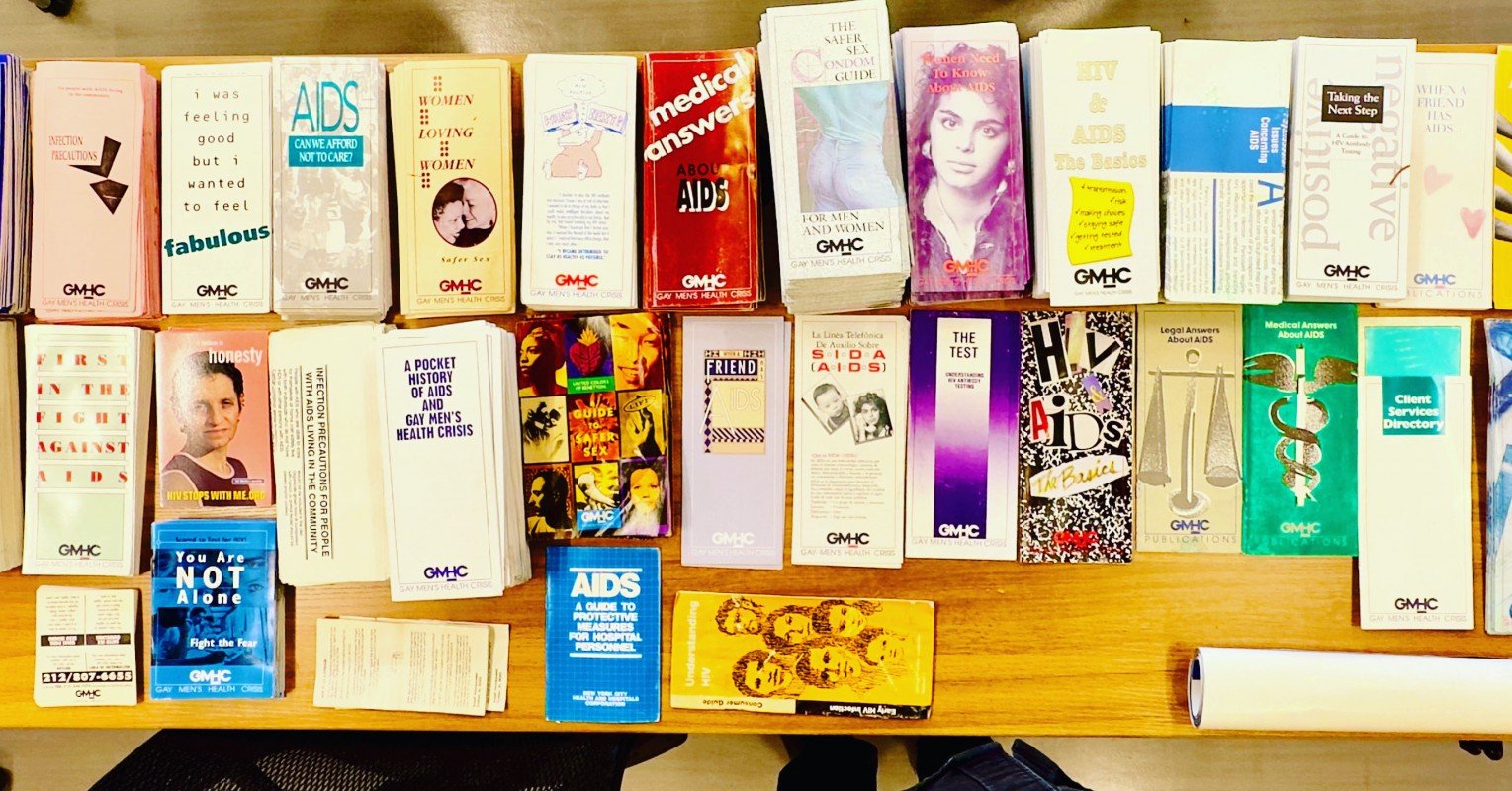Community-based
health promotion
of the HIV/AIDS crisis
During the height of the AIDS crisis, LGBTQ-led HIV/AIDS service organizations created cutting-edge, critical health promotion materials that affirmed and celebrated queer identities. Often crafted by young community members with little formal training, these effective HIV prevention campaigns framed safer sex as a collective strategy for sustaining queer liberation past the outbreak of the virus.
In collaboration with the Binghamton Human Sexualities Research Lab, I study the history of Gay Men’s Health Crisis (GMHC), the world’s first HIV/AIDS service organization and a leader in these critical, participatory, and community-based prevention campaigns. This project has involved (a) the collection of 120+ oral history interviews with former members of GMHC’s staff and volunteer workforce, and (b) curation of additional GMHC archival materials, particularly from those who served as young paraprofessionals within the organization. These interviews and records have been donated to the New York Public Library’s Division of Manuscripts, Archives, and Rare Books and will be made available to the public in early 2026.
With Sean Massey and Eden Lowinger, I am co-writing a book based on this project, tentatively titled “The Most Important Thing I Ever Did”: A History of Gay Men’s Health Crisis (GMHC). My lead-author papers on this topic have been published in The Oral History Review (2025) and the American Journal of Public Health (2025).
Read more about this project in The Conversation and Binghamton University News.
Participatory
Health Promotion With
Contemporary Young People
Calling on this legacy of LGBTQ health activism and advocacy, I am interested in empowering contemporary communities of young queer people to design critical health promotion strategies that are responsive to their lived experiences. How can insights from early HIV prevention campaigns — which posited prevention as a form of collective action — be adapted in practice with young LGBTQ people today?
As the Assistant Director of the Program for Youth Development and Engagement (PRYDE) in the Bronfenbrenner Center for Translational Research at Cornell University, I partner with community-based organizations to create and evaluate programs related to community health and youth empowerment. I also coordinate and co-lead trainings in youth participatory action research (YPAR) for diverse audiences — empowering these young people to ask questions about their health and the social world, then encouraging them to craft strategies for keeping each other safe. Read more about PRYDE’s approach to youth participatory action research here.
Relatedly, this includes inquiry into how LGBTQ adolescents navigate complicated policies and cultural messages to access important forms of sexual and reproductive healthcare, such as PrEP and Doxy PEP (see my editorial in the American Journal of Public Health).
Teaching and Mentorship
I am responsible for mentoring and supervising a cohort of 20 undergraduate PRYDE Scholars — highly motivated students in the College of Human Ecology at Cornell University, each participating in various translational and youth-focused research projects. I also coordinate and co-instruct the BCTR Scholars Program through the Bronfenbrenner Center for Translational Research, a community-engaged learning opportunity for undergraduate students to forge meaningful research-practice partnerships with nonprofit organizations in Ithaca, largely around issues of health equity and social justice.
